Revolutionary Shop Stewards and Workers Councils in the German Revolution
Book review of "Working-Class Politics in the German Revolution: Richard Müller, the Revolutionary Shop Stewards and the Origins of the Council Movement".
If Ralf Hoffrogge were writing within an American context rather than a German one, he would be situated between two important developments in the United States. A new cohort of social movement historians is addressing the gaps in anarchist, anti-authoritarian, and left-communist historiography. Neighboring this is a resurgence of interest in workers' councils historically and in the contemporary period. With the recent translation and subsequent publication of Working-Class Politics in the German Revolution: Richard Müller, the Revolutionary Shop Stewards and the Origins of the Council Movement in two editions, Hoffrogge enters this discourse with a extremely detailed political biography of a nearly unknown militant whose finest years coincided with the German Revolution and workers' council movement of 1918. Communists of various stripes have laid claim to Rosa Luxemburg and anarchists to Gustav Landauer, both murdered as the revolution was suppressed with the latter yelling "to think you are human" as he was stomped to death. Council communists and autonomists have been gifted Richard Müller, who was forgotten in part because he survived.
Revolutions often begin in desertion: sailors, not shop stewards, led the German uprisings of 1918. The end of the Great War steered into the Russian Revolution with soldiers, worn through their boots, joining upheavals rather than returning to their old lives; resulting in the Bolshevik government of October 1917. A year later on October 29th, in a port city 250 miles northwest from Berlin, seamen rebelled, forming sailors councils that later joined with those of workers. Rebellions led by sailors quickly spread across the coast. By November 9th, workers in Berlin left the factories, though daily meetings and shop floor deliberations had begun amongst various revolutionary factions as early as the 2nd. German sailors and workers joined Russians, Greeks, Irish, Mexicans, Egyptians, and Poles as revolutions, often incorporating councils modeled on Russian soviets, emerged across the planet. The Red Scare in the United States prevented circulation of struggles to the American context. Elsewhere in Germany, the Bavarian Council Republic arose November 7th, though it would be defeated electorally in January 1918 with the left parties and radicals pushed out of the government.
There was a constellation of left parties and organizations in Germany leading up to the revolution. The Social Democratic Party of Germany (SPD) had sought a parliamentary avenue to repair the country following economic crises and war; winning the war was viewed as a step toward parliamentary democracy. Karl Liebknecht, like Luxemburg (whom he was eventually killed alongside), was expelled from the SPD due to his antiwar agenda, resulting in the formation of the Independent Social Democratic Party of Germany (USPD). The Spartacus League, led by Liebknecht and Luxemburg, initially functioned as the left wing of of the SPD before merging with the USPD as they increasingly sought revolution through parliamentary means using the vehicle of the workers' councils. Then the Spartacists founded the Communist Party of Germany (KPD) in December 1918. After the revolution of November they attempted to consolidate the left wing of the workers movement and bring the workers' councils and shop stewards under their auspices. Launching their own ill-fated insurrection on January 4th, in what is now referred to as the Spartacist uprising, the KPD was suppressed on the 19th; the arrest and execution of its leadership quickly followed. Meanwhile, outside of these shifting allegiances and political wrangling, the sailors and workers' councils persisted as the democratic, organizational expression of working-class abilities and needs.
As with Antonio Gramsci, Liebknecht and Luxemburg enter into the historical record. What is less recognized is how these party formations sought to capture the democratic and revolutionary impulses of the councils in order to form a workers' state. Müller and the shop stewards stood in opposition to these attempts, even as they participated in governing bodies. There is a fundamental political disagreement here. With regard to the shop stewards, Hoffrogge writes, "Their forum was the factory and their form of political action was the general strike" (p. 62). As a young unionist Müller struck out against the imposition of Taylorism. He was to go from a lathe operator to become the temporary head of state for the revolutionary republic. Meanwhile, as a delegate he was the workers' representative in the daily operations of the revolution. Reflecting on Müller's views, Hoffogge offers,
The councils were the original representation of the working class. In the eyes of his opponents, the mass mobilization, which turned every street and factory into a parliament, was 'pure anarchy,' the opposite of politics. The councils' potential for a different structure of representation was opposed and suppressed by the coalition of traditional elites purporting to represent the 'people' (p. 91).
Müller served as workers' council delegate to the Executive Council of the Council of People's Deputies, the governing body of the councils and hence post-revolutionary Berlin. His position as chair meant he was in charge of the Council and in turn the government. The experiment of the Executive Council was to be short-lived since on December 16th the machinery of state was subsumed under the Central Council; the Executive Council, with its direct relationships to sailors and workers' councils, was jettisoned. These maneuvers from above would mark the decline of the November Revolution. Before a year had past, in August 1919, the constitution that would become the guiding document of the Weimer Republic was instituted. Nevertheless workers in central Germany launched rebellions during March 1921 and again in Hamburg throughout October 1923. With the end of the Hamburg uprising the romance of the Germany Revolution was extinguished.
Hoffrogge details the process of revolutionary upheaval, followed by the innumerable ways it disintegrated. Hoffrogge observes that workers' councils, drawing on Müller's own writing of 1913, "had to work out collective practices, like refusal of overtime or slow-downs, gradually and painstakingly" (p. 18). These machinations do not translate into parliamentary politics. Two key political lessons result. First, as delegates and members of councils, ordinary workers are ill-equipped to jostle with party bureaucrats and professional politicians in government bodies. In fact, it is not only the structural incorporation of workers' councils into the government that lead to their defeat. The very day-to-day mechanisms of government dominated by the party and politicians erode the democratic impulses of delegates while replacing their spontaneous enthusiasm with proceduralism. As a result, and secondly, preparing for governing post-revolutionary conditions is an important area for future theorization and organizing. However, Hoffrogge has produced an intellectual history not a genealogy or strategic manual for potential workers' councils. The book suffers for lack of a proper introduction and overview for those unfamiliar with the German Revolution. The first such summary appears in chapter five. Many readers will have trouble acclimating to the context Müller was operating within.
There are two ways to read Working-Class Politics in the German Revolution: as a social movement history or as a biography. Readers looking for the former will stop at chapter nine and forgo the final three chapters, which address Müller's developments after leaving politics. But for those looking for the arc that is a political life will discover Hoffrogge's excruciatingly detailed account of the lathe operator who was to become temporary head of the German Republic before "returning to obscurity" (p. 230).
Read as a social movement history, Hoffrogge joins the resurgence of interest in workers' councils following the 2008 planetary economic crisis. Edited collections, including, Ours to Master and to Own: Workers' Control from the Commune to the Present (where Hoffrogge's writing on Müller first appeared in English), New Forms of Worker Organizing: The Syndicalist and Autonomist Restoration of Class-Struggle Unionism, and An Alternative Labor History: Worker Control and Workplace Democracy have reintroduced the concept of the workers' council to contemporary labor organizers, although, a new edition of labor historian Peter Rachleff's out-of-print Marxism and Council Communism would provide a historical overview of these ideas and practices. As social movement scholars, Hoffroge and others will have to contend with the short twentieth century where workers' councils appeared as part of revolutionary upheavals. When considered chronologically, these include: Russia, Poland, Germany, Italy, Ireland, China, Spain, Hungary, France, Chile, and Iran. Did what began in 1905 conclude in 1978?
While Hoffrogge addresses missing historiography, I am afraid that the specificity of the subject matter - Müller, shop stewards, Berlin in 1918 - will draw readers away from the considerable details of day-to-day organizing and operations of workers' councils. Admittedly this is a criticism of the reader rather than the author. The Brill edition is a pricy hardback suitable for academic libraries. Historical Materialism has corrected this initial error by providing a softcover version at just over the cost of buying a round of bier for Luxemburg, Liebknecht, Landauer, and Müller.
Hoffrogge, Ralf. Working-Class Politics in the German Revolution: Richard Müller, the Revolutionary Shop Stewards and the Origins of the Council Movement. Joseph Keady, trans. Chicago: Haymarket Books. 2015. 253 pp. $28.00 softcover. ISBN 978-16-08-46550-7; and, Leiden & Boston: Brill. 2015. 253 pp. $141.00 hardback. ISBN 978-90-04-21921-2.
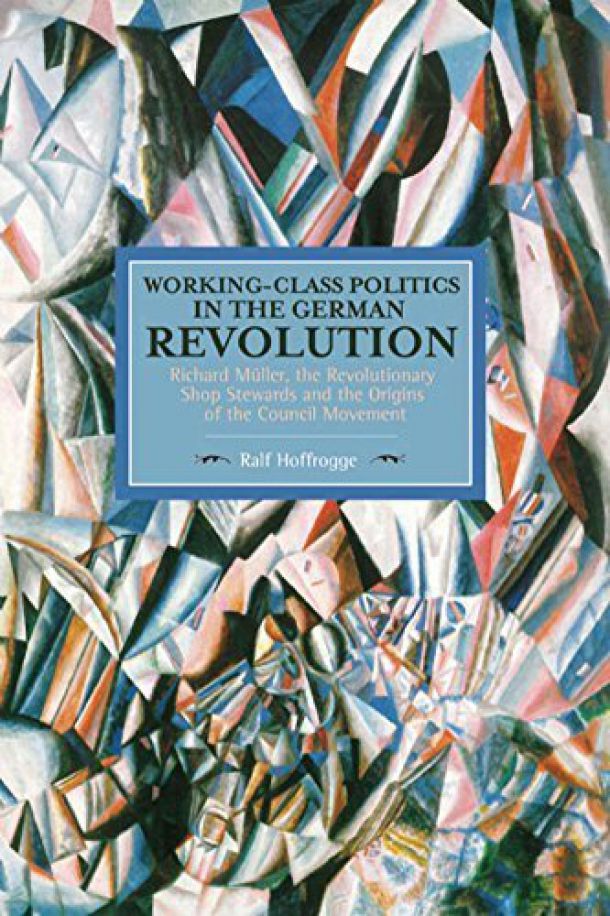
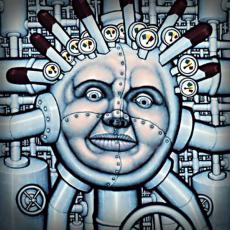

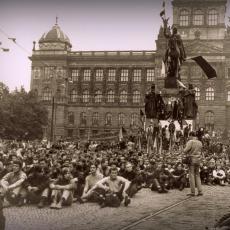
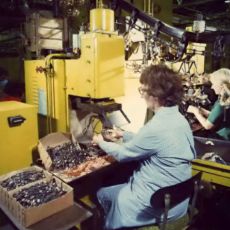
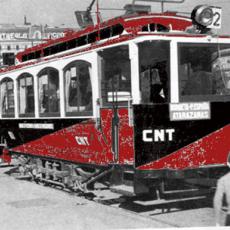
Comments
Post new comment